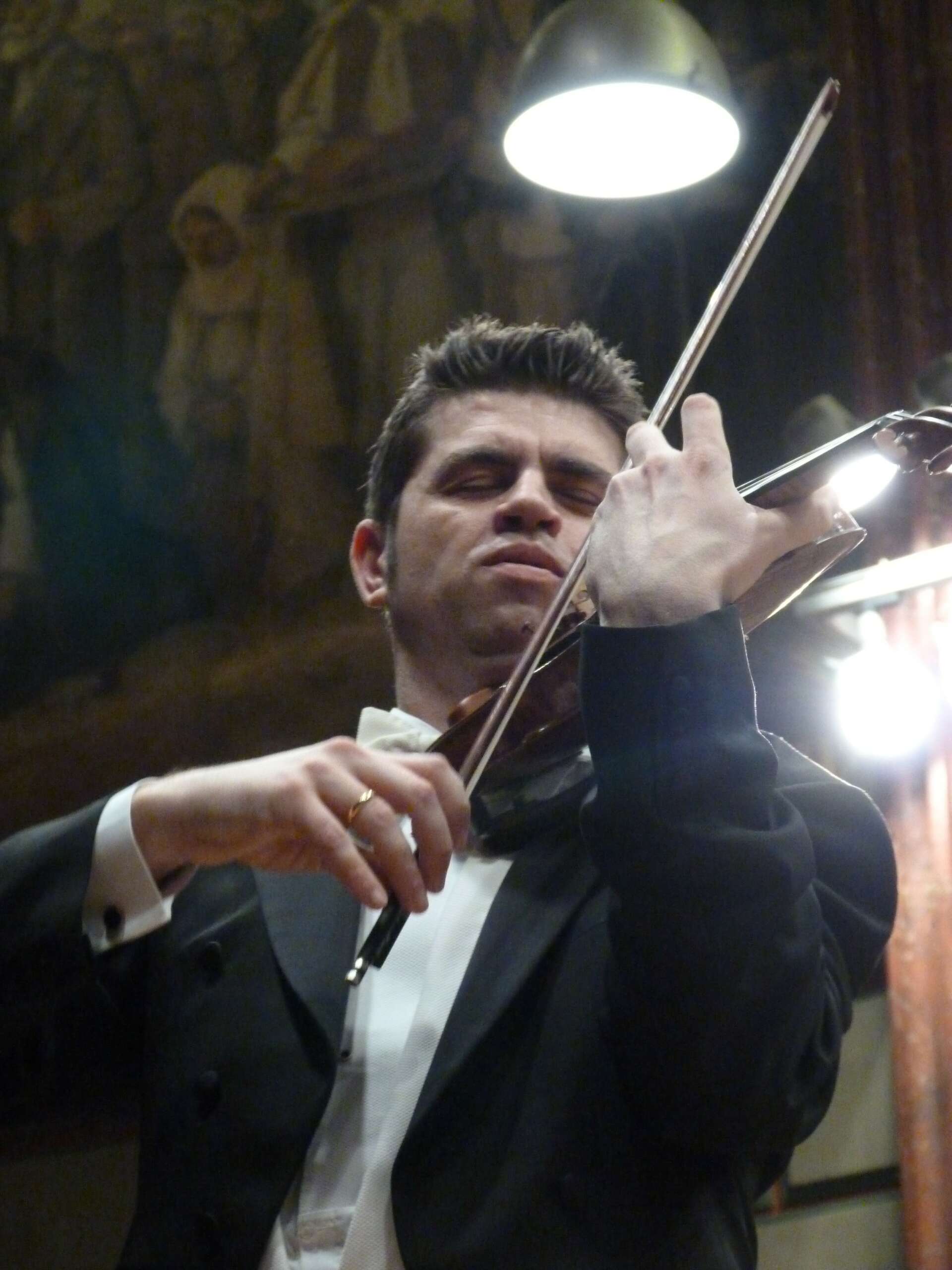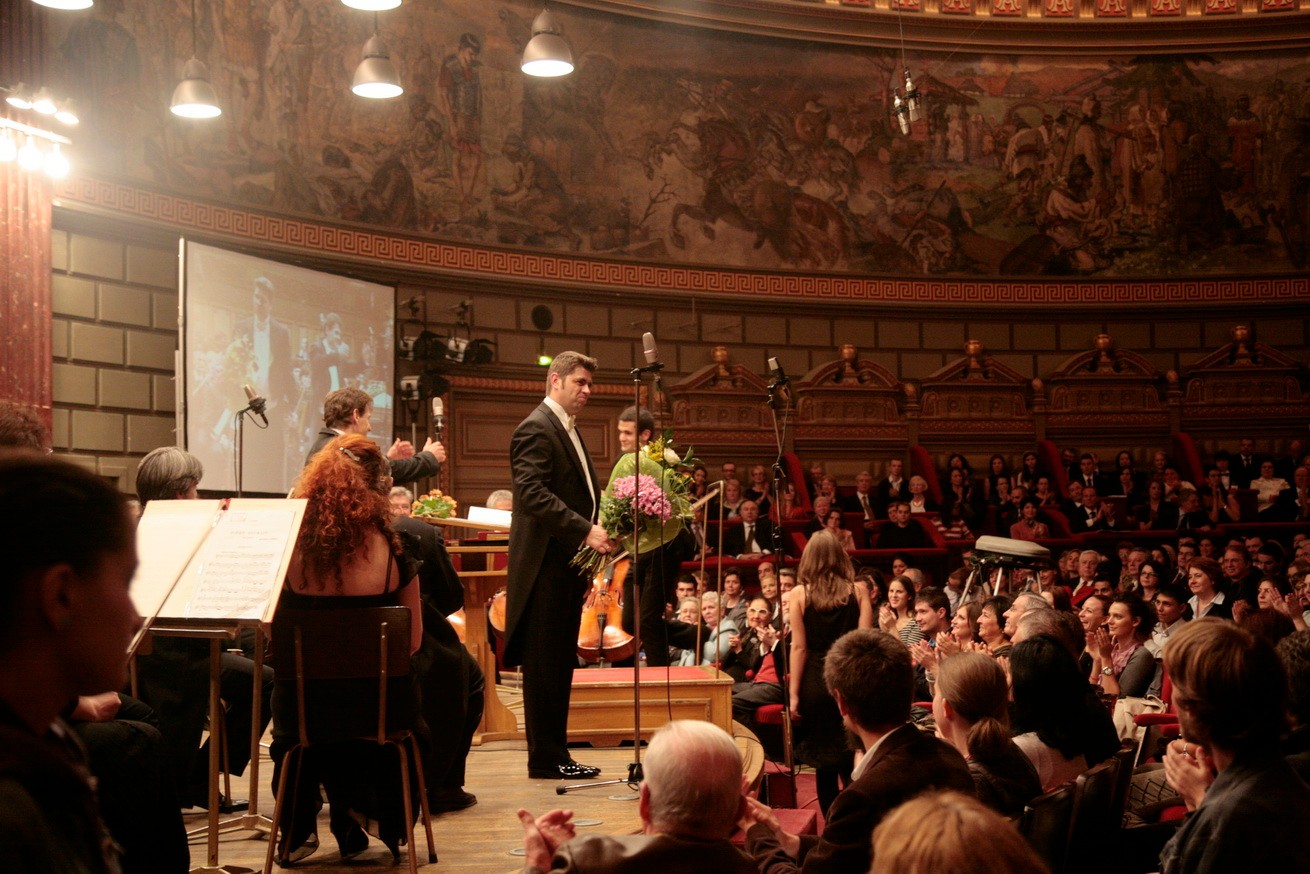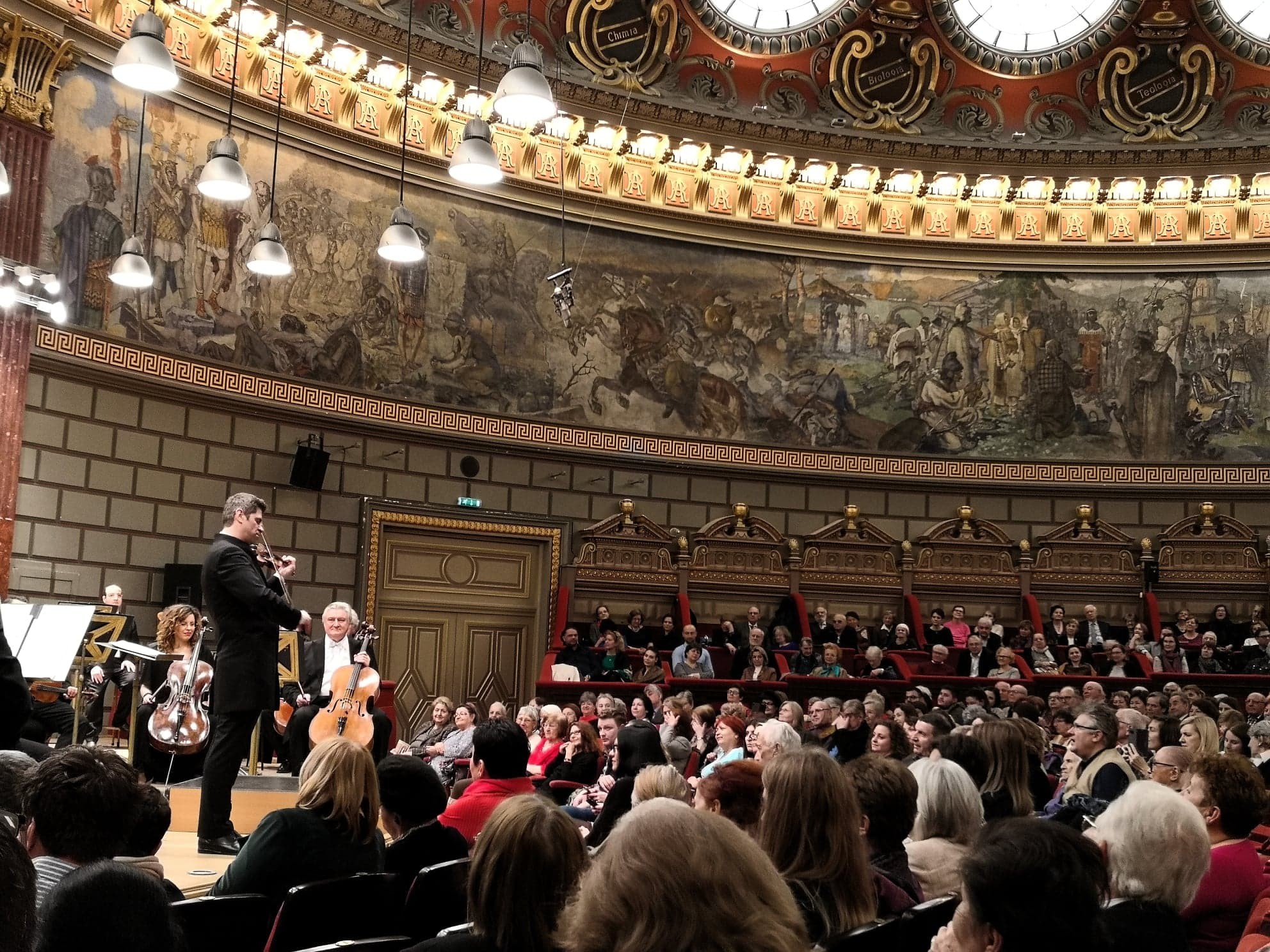Alright – so today we’ve got the honor of introducing you to Remus Azoitei. We think you’ll enjoy our conversation, we’ve shared it below.
Remus, appreciate you joining us today. Are you happier as a creative? Do you sometimes think about what it would be like to just have a regular job? Can you talk to us about how you think through these emotions?
Playing the violin from the age of 5 pretty much shapes your musical road from the very early stages, to the point where you wake up being 16-17 and there is nothing else you can do better than playing the violin. This is where your future has been already chosen for you and you like it or not, you have to march forward and try to be one of the very best, in order to survive in a highly competitive world.
Before you know, your craft takes a central position in your life, and everything else such as life decisions, small pleasures, even family, they all take a secondary role. There are no weekends, no Sundays or free days – this concept does not apply to a performing artist who makes a living out of it; holidays are an almost utopic concept too.
However, there is a wonderfully positive side, and it is THE one: the joy I can see in the audience faces, sometimes tears, after some performances, the never ending ovations; in those moments I know I changed their lives and I am their hero.. This is the high counterweight to a life of sacrifices and pain to get there.


As always, we appreciate you sharing your insights and we’ve got a few more questions for you, but before we get to all of that can you take a minute to introduce yourself and give our readers some of your back background and context?
I was born in Galati in 1971, an Eastern town in communist Romania. For those who never experienced living in a communist country, it is nearly impossible to understand the highly restrictive life, from lack of freedom of speech to the scarcity of the most basic elements, from food to daily objects. Food heavily rationalised, electricity reduced to only 4 hours per day, the unbearable cold on heavy winters with no heating.
Despite this, culture in Romania has always been strong, as it has to do with people’s quality and organic secular cultural growth. Nearly everyone learns a craft, an instrument to play or creates something, anything. My parents thought I should learn the violin and little did they know, 6 months after picking it up, I won my very first prize in a national competition! This brought a lot of joy but also a big headache as it was clear that there is something special about me and… how do we proceed next? During that time, all talent from Romania was gravitating towards Bucharest, amassed at the George Enescu Highschool, a highly competitive institution where everyone had to be, in order to “make it”. The problem was that people were not allowed to change cities and it took my parents many years of trying before we finally managed to relocate my entire family to Bucharest – I was 13 by then.
Once in Bucharest, I won prize after prize and eventually entered the Bucharest Conservatoire. Revolution happened to Romania in 1989, freedom was assured but there was so much darkness and discouraging poverty. My dream was to go study at Juilliard School in New York, in order to polish my craft to another level. God helped me and after a few years of saving for a plane ticket, I went to New York and audition at Juilliard. I was admitted with full scholarship and was also accepted into the studio of Dorothy DeLay, a highly famous and celebrated violin teacher, the best of the best! By then I already won important international prizes and started performing important concerts around. Dorothy DeLay then recommended me to the great violinist Itzhak Perlman, with whom I worked from time to time and who had a major influence on my style of playing. At Juilliard I also learnt a lot of the other aspects of music, from analysis to counterpoint and composition, all necessary ingredients to make you a top musician – it was a hard, but a very rewarding experience.
3 years on, and in 2001 I moved to the UK. I was performing many concerts and I was approached by the Royal Academy of Music in London, to become one of their violin professors – that was a great honour for me! At that time I happened to be the youngest violin professor ever at the Academy, and I could not be happier! Since then, I held British and Romanian passports.
I have been teaching a lot of students at the Academy and kept my diary of concerts full, going everywhere. Lately though, after nearly 28 years abroad, I started to experience the urge to reconnect with my native country, Romania, in a stronger way; I have never lost touch with it, but now I feel that I need to give back some of the immense tools it gave me, from talent to years of education before I left to the West. So I am more and more involved with concerts in Romania, I have Romanian students and I help them as much as I can. I have recorded the world’s first ever entire repertoire for violin and piano by George Enescu, the greatest Romanian composer, an award-winning and highly celebrated CD collection.


In your view, what can society to do to best support artists, creatives and a thriving creative ecosystem?
There is always this idea that performing arts must self-sustain financially. I completely disagree, the classical music – my field, must be at least partially supported by governments. Arts (and cultural education) have always been seen by politicians like the last carriage on a train, more or less trailing it unnecessarily; in moments of economic hardship, politicians cut the carriage loose as it is not seen as “crucially essential”. As such, musicians are forced to live on very little, work so much harder to make a living and sustain a family, let alone owning a place to live. During the pandemic, US and English orchestras were unpaid, the small governmental money that went to arts institutions covered the bare necessities such a building insurance, admin stuff and other basic bills, but no money ever went to any musician, forcing them onto a desperate path. By contrast, in continental Europe it was all different, musicians were supported and had salaries covered during large pandemic time segments with no performances – that was wonderful.
I really hope this culture and mentality towards performing arts will change in the English-speaking countries, it has to change. We need classical music, we need culture, we need live performances, otherwise we will all become some online zombies with no desire to watch anything but news and sports.
Lets not forget that performing artists such as myself start working very hard from early ages, invest in string instruments that cost sometime millions in order to be competitive, they pay for high quality education such a Juilliard, Curtis Institute or Royal Academy of Music and have no week-ends – individual practice must be a daily routine… They need to be protected and seen as they deserve to be: highly skilled workers.
We’d love to hear a story of resilience from your journey.
Actually a funny story… As a fresh Masters student in 1997, recently arrived in New York from Romania, I had to learn a lot of things very quickly…. In my first few days at Juilliard in New York, everyone kept asking me about my email address – i had no idea what that was, Internet was still in its early stages, and completely unheard of in Romania. I was told to go to the Computer Lab at Juilliard to “get an email address”. Well, I wanted to blend in and be in line with all the others, so I went to the Computer Lab, and I was amazed to see 25-30 individuals using these huge monitors, that was the Internet and I didn’t know it…
So I went to the guy at front desk, I pulled a shopping bag out of my pocket and I asked to buy 3-4 emails, to take them home. The guy froze and looked at me like I just landed from Mars, in fact everybody in that lab just stopped and started laughing convulsively. I felt like horrible, like the most stupid person ever and it marked me deeply – I even cried that day.
I understood the big gap between the 2 countries and their place in the world, and I realised I had to adapt quickly and still try to be one of the very best in my profession – without false modesty, I think it happened. In the open violin auditions at Juilliard that followed, I was performing and showing the best of me, and I can assure you no-one laughed anymore.
Contact Info:
- Website: www.remusazoitei.com
Image Credits
Ilie Bumbac


